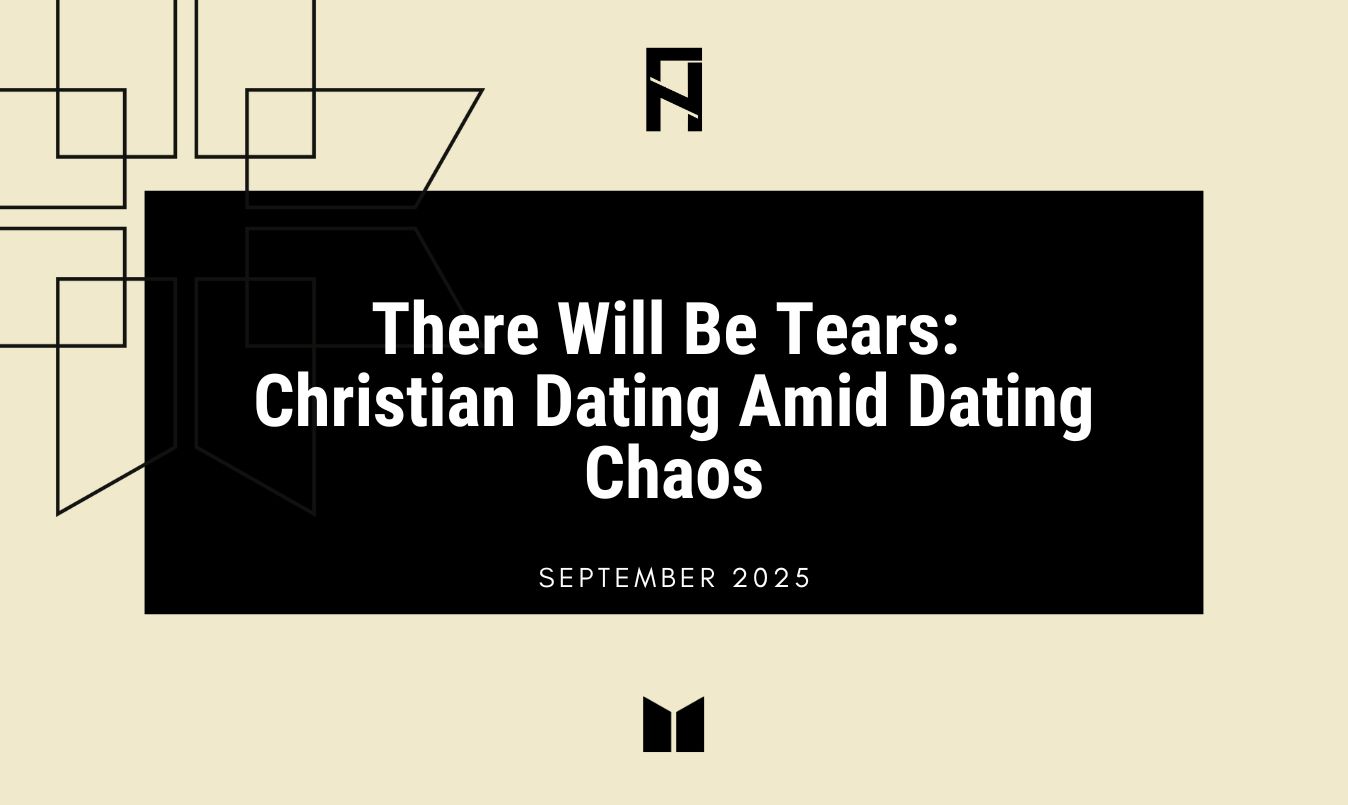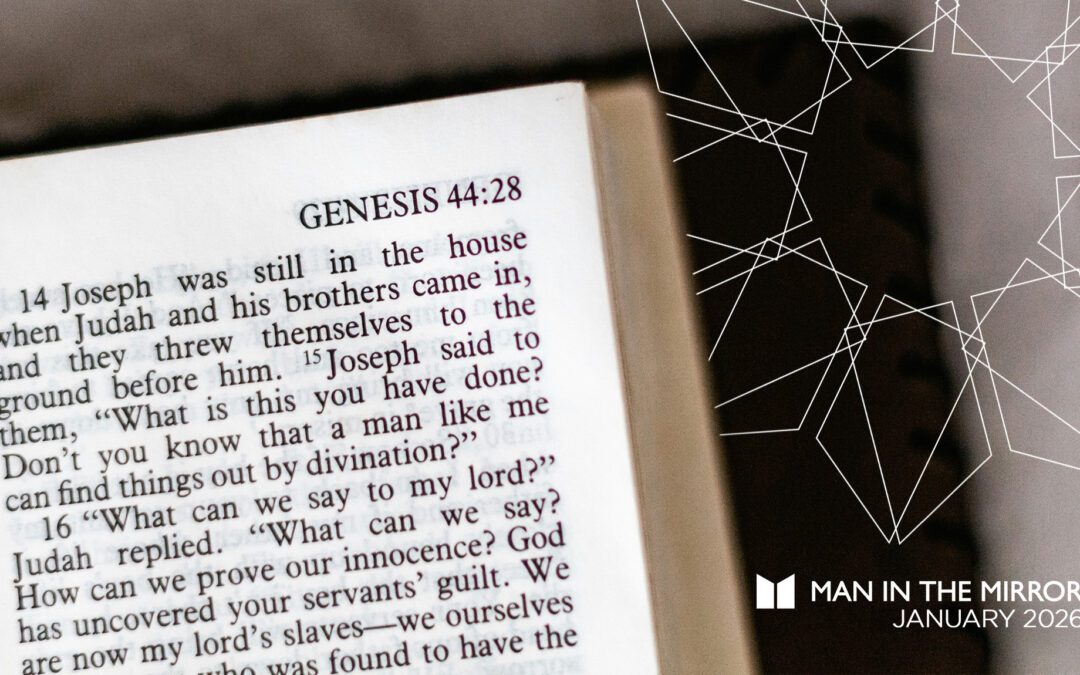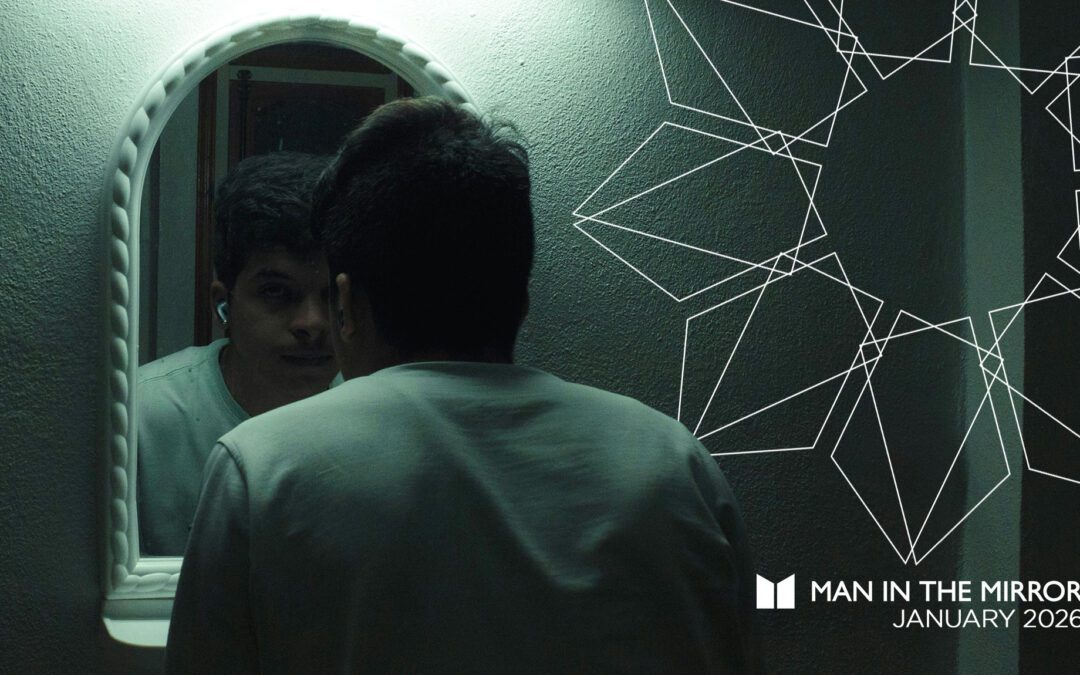We are in a new chapter now. Ours is a post-purity-culture world. Books are now being published about the damage it caused to a generation of young people. Joshua Harris, the champion of “kissing dating goodbye,” has lost both his marriage and his faith. Jen Hatmaker states that she will no longer attend church. In the wake of this turmoil is a generation of confused young people. They may be serious about following Jesus but have little idea of how this translates to their dating longings and practices. The church’s silence and lack of practical guidance is not helpful. Young people may not want finger-wagging moralism, but they could use some relational wisdom.
That there will be tears is an honest admission. You cannot navigate confusing our dating world with something as fragile as your hearts without experiencing some pain. Jane Austen and Bret Ellis won’t necessarily have a happy Hallmark ending. The pain can come from following the culture into Tinder-directed casual sexual encounters. The pain can also come from realizing the full implications of following Christ in your dating world. Marriageable men and women are in short supply. There is a growing number of young people who no longer believe in marriage, opting instead for other forms of cohabitation or friends-with-benefits. And then we must first determine the person’s sexual orientation, which is no longer apparent from the mainstreaming of LGBTQ+ passing. And then we must determine whether they are believing Christians—how serious and of what stripe. Some add to this their political affiliation. The myth of a soulmate somewhere out there meets harsh statistical realities. There are very few marriage prospects. People attempt to overcome the statistical barriers through dating apps, now fueled by AI, as their longings mount, and these apps promise the world. Twenty-five percent of new marriages begin through online dating. These apps are decreasing in popularity because there is a growing legitimate concern about trust and authenticity on these platforms. Lying on your profile is not a good start to a meaningful relationship.
The longing for romance morphs into low-grade anger. Where are the good men? Where are the good women? “God, I only need one, is that too much to ask?” Many just settle into some kind of relationship by chance and without conscious direction because at least in the short term it is better financially and relationally than nothing. Reality has no room for idealism. Unless they have become jaded and feel relational despair, many young people fear being alone and unloved. In this world, your tears and anger are a positive sign showing that you still care, still have feelings, still have hope, still have dreams, and are still looking. But these tears are bitter, and sadly common. We must admit that relational loneliness is a terrible emotional state impacting a third of young people. Surgeon General Vivek Murthy stated, “Addressing the crisis of loneliness and isolation is one of our generation’s greatest challenges.” This is the lived backdrop to all discussions about dating. It is not just that there will be tears, there are tears now.
There is wise guidance that can be given to these despairing young people about dating. This guidance assumes some basic understanding about the nature of truth, discipleship, grace, marriage, and sexuality. If this is missing, then you need to begin here. Here are some resources that you might study:
Carl R. Trueman, Strange New World: How Thinkers and Activists Redefined Identity and Sparked the Sexual Revolution
Dallas Willard, The Great Omission: Reclaiming Jesus’s Essential Teachings on Discipleship
Christopher West, Fill These Hearts: God, Sex, and the Universal Longing
David John Seel, Jr., Aspirational Masculinity: On Making Men Whole.
With these resources as the backdrop to a traditional biblical understanding of sexuality and marriage, let’s talk about some wise guidance regarding dating. Wisdom is the God-given ability to see reality as God has ordered it, to revere Him rightly, and to live skillfully in alignment with His truth, revealed fully in Jesus Christ.
First, some kind of dating is going to take place if we are going to get to know another person as a potential love interest. We’re not going to be kissing dating goodbye. We just need wise dating. Being wise about where you go and what you do is going to set the terms of your dating relationships. If you add alcohol to the mix and/or stay out past midnight, the level of caution needs to increase. Women sometimes get in trouble on dates and most often one or both rules are not followed.
Second, dating involves more than two persons. It involves two families, and especially two fathers. You do not marry a person; you marry a family system. Therefore, if you are dating in the light of marriage or with the prospect of marriage, then the family system must be involved from the outset. The notion of bringing a love interest home to meet the family at Thanksgiving or Christmas, usually just prior to getting engaged, establishes the wrong relational terms for the entire dating process. Expressive individualism is the guiding philosophy behind secular relationship today. This philosophy assumes that my individual subjective feelings are the most authoritative and authentic aspect of myself. I must therefore, “Listen to my heart, follow my gut, be true to myself.” This view of relationships is most notably championed by Taylor Swift. As such it establishes the frame of dating on the totally wrong basis.
The truth is not found in your heart but in God’s Word and creational norms. To help you keep this in view when everything around you are telling you otherwise, the family must be involved in your dating from the outset—whenever the relationship shifts from casual to serious, from random to steady. You should not give your heart to someone until and unless you have your family’s, and particularly your father’s, support. The more basic question is not “Is this a person I can marry?” but “Is this a person I can date in the light of marriage?” And if you don’t have a present father or a reliably loving one, a surrogate father-figure may have to do. But you should not make this basic decision alone. Outside counsel is needed much earlier than is normally provided because this is the only way you can save your heart from the potential of added pain. This means that the dynamics of dating are going to have to change from being individually based to being family based. This is one of your best safeguards against avoidable tears. If this seems weird and off-putting to the person you are proposing to date, then it is likely that they are not a person you should be dating.
Third, dating is defined as pursuing a relationship with the prospect of falling in love. Not all social gathering with persons of the opposite sex is so defined. There are casual gatherings of friends around shared social events. Dating has another specific agenda. Defining this agenda early in the relationship is important. Sometimes this is described as “the talk.” For some the agenda is just being seen as a “couple.” This is a typical female perspective. For others its some form of sexual activity. This is a typical male perspective. For others it anticipates deciding about marriage as a life-time commitment. This is the ideal and recommended perspective. With this ideal perspective in mind, it is not wise to put the pressure of marriage on the first date. A first date can be “just lunch.” However, as the relationship progresses and becomes special, serious, and consistent, then it must be seen in the light of marriage and evaluated strenuously on that basis. Be assured, the older you are the more quickly this dynamic will progress. We’re not in high school anymore. When dating in your twenties and older, the stakes are much higher and are felt to be so by all parties. Don’t pretend otherwise. Get your families involved early in the relationship.
Fourth, you must be aware that you can fall in love with anyone. If the person at the outset is not a person who qualifies to be marriage, then entering a serious relationship with that person is a fundamental compromise of your convictions. You are giving your heart in a manner that borders on sin as you are putting your feelings for the person above your obedience to Christ. This is a relational recipe destined for tears and pain particularly if the person is a “catch” in every other way. The most obvious barrier is the person’s own relationship to Christ. If they do not know Christ or if they are not mature in Christ, then they do not qualify as a person who is marriageable for Christ. Missionary dating is bad for both parties. It is playing with spiritual fire for the believer, and it confuses the motives around belief in Christ for the nonbeliever. It is a nonworkable situation for both parties.
In addition, in today’s world, if you continue in such a relationship, it is almost guaranteed that you will also commit sexual sin. This is certain because you have already put your feeling above your convictions in maintaining the serious relationship itself and it is a logical next step that you will put your sexual feelings also above your convictions when with someone who does not respect God’s sexual boundaries. We are not living in a Victorian world where the nonbelieving culture continues to respect biblical sexual mores or considers any stigma against them. Today, sixty percent of couples who marriage have cohabitated before marriage and eighty percent have had sex before marriage. With this cultural expectation, you are naive to think that you might be the statistical exception to the current cultural norm. If you are dating a non-Christian, it can be reasonably assumed that you are or will be having sex with that person outside of marriage.
For these reasons, you must guard your heart early in the relationship or the eventual pain will compound. These spiritual concerns are totally omitted in Hallmark rom com movies. In these films, faithfulness to God in your relationship is never put forward as a serious consideration in romance. The thing that is most important in your relationship is ignored in the relationship. If you date a nonbeliever, this is the reality that you are stepping into. You are damaging your faith, crippling your relationship, and wounding the prospect of a healthy marriage.
You need to guard your heart particularly at the place of your relational fatal flaw. Most people have them: wounds from the past or insecurities in the present that make us particularly susceptible to the love and attention given by another person. If you are insecure as a man, if you question whether you are beautiful or feminine enough as a woman, you will be susceptible of finding love in all the wrong places.
Falling in love is a powerful experience. It can cause us to lose perspective, compromise our convictions, and cause deep psychological confusion. The love of a real person in front of you seems much more real and tangible that God’s love for you that aims to guide your love in your long-term best interest. Biblical convictions can melt away when your love interest touches your relational fatal flaw. It is far easier to guard your heart at the outset of a relationship than to have to break off a relationship when the emotions have already grown strong and the rom com scripts are playing in your head. This is what wisdom dictates in dating. The pain of the former—breaking off the relationship early is far less painful than the latter—breaking off the relationship once you are madly in love and probably having sex—though the pain of both is real.
Breaking up with a non-Christian with whom you’ve become overly attached is difficult. It is difficult because there is no way that they will understand or appreciate why even if they know the reason. In such a one-sided breakup, it needs to be clean, quick, and brief. No lengthy explanation is going to be helpful. It is also likely that because of the spiritual nature of the breakup that it will be met with a high degree of anger. They will also make every attempt to just hang around, a kind of low-grade emotional stalking. If allowed, this will require you breaking up a second time and going through the entire process again.
We are talking here about the tip of the spear of spiritual warfare. It is also likely that the non-Christian party will want to draw out the discussion, maintain some measure of the relationship. The breakup needs to be clear, quick, and brief. They don’t deserve an explanation as to why. Moreover, contact with the person will need to be ended. If at this point you assume that you can “still be friends,” you do not understand the relational dynamics involved. If you try to act like friends, you will soon have to have a second breakup conversation. In doing so you are prolonging and compounding the pain. A clean break in such a situation is necessary. It will feel terrible. You may not even understand the rationale at the time. You will be increasing the potential for anger. And yet, it is wise course of action. You will need space to heal, to regain your perspective, to reorient your spiritual life, and to settle your churned up emotions. Stirring this pot with repeated phone calls, text, and visits after the breakup are going to be woefully counterproductive.
The pain of having a broken heart is a valuable life lesson. Most older people will have experienced it at some time in their life. The experience reminds us that we are playing with fire when we are playing with love, that care must be exercised in dating relationships, and beliefs and convictions must be affirmed and acted on early in the relationship not late when the conflicting emotions are high. There are many people whose spiritual lives have gone sideways because they have not guarded their heart, let their emotions dictate, allowed lust to rule, and accepted the dynamics of cultural norms.
- You must learn to date wisely.
- You date to fall in love.
- You can fall in love with anyone.
- You must not fall in love with a nonbeliever.
- A nonbeliever will not understand why.
With these principles as backdrop, here is some wisdom regarding modern dating.
Wisdom 1: You can date a nonbeliever casually. However, you should not enter a serious, emotionally involved relationship with a nonbeliever. Moreover, you need to determine how serious of a believer is the potential dating partner. They should be a person who is an active apprentice of Jesus, learning from him how to be like him. This is far more than saying one is a Christian, affirming theological or doctrinal beliefs, or going to church. They need to be a person who by their consistent behavior overtime is seeking to be transformed by Christ and whose life’s ambition is serving Christ and his kingdom. In such a person, it will be self-evident that they are a serious believer. It will not be a hidden mystery. If you must ask the question about their faith, it is probably a red flag at the outset. Marriage is the most intimate life-long relationship you will have. Consequently, the biblical command, “Do not be yoked together with unbelievers. For what do righteousness and wickedness have in common?” (2 Corinthians 6:4) could not be clearer. This is a relational boundary that Christian dating must not cross. Marriage should further enhance your relationship with Christ, serve as a catalyst in your kingdom calling, not serve as a constant drag on your spiritual growth. Relationally speaking, this is the single greatest test of your personal fidelity to Christ. The book of wisdom states, “So above all, guard the affections of your heart, for they affect all that you are. Pay attention to the welfare of your innermost being, for from there flows the wellspring of life” (Proverbs 4:23, The Passion Translation). Dating proves this point every time.
Wisdom 2: You will find a potential spouse in church or doing something for the kingdom that parallels your calling. If you are seeking a calling-centric marriage, a marriage that is not simply about the love between two persons, but a shared sense of kingdom calling, then you will find a spouse in the context of doing your calling. That’s where they will be. Richard Foster writes, “The basis for getting married that conforms to the way of Christ is a regard for the wellbeing of others and ourselves and a regard for the advancement of the kingdom of God upon the earth…. Christian marriage is far more than a private undertaking or way to personal fulfillment. Christians contemplating marriage must consider the larger question of vocation and calling, the good of others, and the wellbeing of the community of faith, and most of all, how their marriage would advance or hinder the work of the kingdom of God.” It is calling-centric marriage that shifts the frame from expressive individualism to kingdom obedience. Such marriage is often found among missionaries and military families but should be increasingly seen as the ideal norm not the rare super-spiritual exception.
Following from this, weddings need to be rooted within your local church as it is here that your primary supportive social community is found. Destination weddings outside of the church skew the understanding of what the marriage is supposed to be about and on what basis it is rightfully based. Moreover, the spiritual center of the wedding is the vow, perhaps the shared communion after the vows, but not the first dance or the cutting of the cake. Weddings are not elaborate parties in click-bait worthy locations, they are sacred covenants made in public that create a new social entity, a new spiritual family. They are more than a choice. They are more than an expression of chemistry. They are a spiritual covenant that is among the most serious, somber and sacred undertakings you will enter in your life. It is a joyful occasion, but it is much more than an expensive, elaborate party. Marriage is like creating a nuclear reactor. It has its own rules and guidelines, which if ignored or violated will cause a massive explosion. It is not a passive thing that is being created but fragile explosive thing. Attention and care is required.
Divorce is among the most painful experiences you can have. Today about forty percent of marriages end in divorce. However, if you follow the wise guideline above about a calling-centric marriage the number drops to around two percent. There is wisdom in getting this right. There is added pain in getting this wrong.
Wisdom 3: You will know that you are ready to get married when you have a secure sense of your own identity and a clear idea of your calling. If you don’t know who you are in Christ and you don’t know what you should be doing with your life for Christ (and how you will fund this), then you are not ready to get married because both inform who you should marry. This means practically that many should be focused more on becoming the person worthy of marriage rather than trying to find someone to marry. If you do the first, the latter will come. To reverse the order is to create the recipe for pain and divorce. There is a reason why second and third marriages have an increasing divorce rate. It is because the couples involved have not done the painful soul work to assess the root causes of their previous failures. So, the cycles persist, the scars compound, and the relational collateral damage widens. There is a better way.
Moreover, as indicated above, all of us need to consciously address our psychological fatal flaws. They are the embodied Velcro on which sinful patterns stick. We need to address them through healing prayer and spiritual counseling. They should not be ignored because future relationships will not ignore them.
Wisdom 4: Biblical dating involves listening prayer and daily dying to self. It is way to serious, too potentially painful, too spiritually consequential to be undertaken by yourself. Dating must involve walking with Jesus in a daily conversation with him that involves listening to his guidance. If you date a nonbeliever, you cut off this relational dynamic with Jesus because of your disobedience and are thus relegated to doing your dating on your own. To date a nonbeliever is to ghost Jesus. This is not something you want to do with something that is this spiritually important and life defining.
It is psychologically true that healthy dating involves constant honest communication between the dating parties. It is spiritually true that healthy dating involves open honest daily listening communication with God.
You don’t want to cut the phone line to God. Don’t go it alone.
Dating must be bathed in prayer and shaped by a cross. It is a fool who embarks on dating without the spiritual guidance, power, and presence of God. “The starting point for acquiring wisdom is to be consumed with awe as you worship Yahweh. to receive the revelation of the Holy One, you must come to the one who has living-understanding” (Proverbs 9:10). You can ill afford to going it alone, dating in our nihilistic morally distorted culture. Our need for love is too important to treat this casually.
Dating is inherently risky. There will always be tears. But we need not add avoidable heartbreak to the mix. With wisdom, biblical conviction, and a calling-centric vision of marriage, Christian dating can become a pathway to joy rather than despair. You may just find that even through the tears, God is writing a story of hope for your life.






